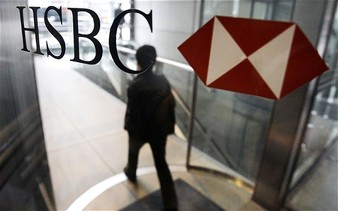|
Stephen Catlin, head of the largest Lloyd's insurer Catlin Group, delivered a stark message to the business and the insurance communities this week. He said that the potential liabilities following a cyber attack are too large for insurers to cover. Wow. Most company directors and executives have a general awareness of cyber risk: that attacks can have drastic impact on business. However, many directors and executives have probably felt that their insurances and risk plans have been sufficient. Until now perhaps. What might Catlin's comments mean for business? Could the uber-connected world and the seemingly headlong thrust towards the Internet of Things have some nasty side-effects that we are only just becoming apparent? For example, if companies cannot secure adequate insurance cover (either outright or at a reasonable cost), might they be faced with the challenge of reviewing their business models? Progress rarely occurs without consequences. Perhaps some of the so-called old ways that many have rushed to consign to history—like walking into a store and buying groceries and other goods in person—might not be so bad after all. Is your board prepared to wrestle with this issue, or will it simply walk away?
0 Comments
 In two weeks, I will be back in the UK and EU, my fourth visit in sixteen months. London and several other cities are calling. Interest in boards and board performance seems to be high so I am happy to make the investment. The purpose of this trip is to speak; to learn about some of the challenges that boards in the UK and EU are grappling with; and, to tell stories about board practice and business performance. I am looking forward to picking up on some earlier conversations, and to starting some new ones. Here is the schedule as it stands:
While the schedule seems to be fairly full, there is always room for one more breakfast, daytime or dinner appointment! If you would like to ask a question, chat about a challenging situation or learn about my latest research, please contact me to schedule a meeting.
In issuing an apology letter and statement that HSBC has been completely overhauled, Stuart Gulliver, chief executive, has put a stake in the ground. He wants to move on. Some may argue that more needs to be done because accountability and consequence are important foils to anarchy and chaos. However, the sentiment underpinning Gulliver's message is an important foundation of civil society: that sooner or later communities need to respond to scandals, make adjustments, and then consign them to history.
 The debacle that has become known as #HSBCleaks continues to simmer. Stuart Gulliver, chief executive, went public today with a full-page letter in several Sunday papers. The letter offers an apology for the debacle, and it seeks to provide some assurances to both customers and the general public. Statements that the bank has "completely overhauled" and "fundamentally changed" its operation sound good, albeit historical. But what of the executives and directors who were not monitoring business operations properly? Are they still happily drawing benefits without further consequence? Does accountability stop short of the executive suite and the boardroom? That Lord Green is the only head to have rolled so far raises more questions than it answers, including what "completely overhauled" actually means.
The annual International Conference on Management, Leadership and Governance is over for another year. The third edition of the conference, in Auckland New Zealand, built on the earlier editions. The two keynote speakers, Phil O'Reilly and Andrea Thompson, were well received. They set the scene for each day nicely. Three strong themes emerged during the conference, as follows:
Some further reflections:
So, there you have it. The 3rd International Conference on Management Leadership and Governance is over. I look forward to the 4th edition in twelve months' time. The venue should be announced in the next month or two.
Have you noticed how common the term 'governance' and a whole raft of variants have become in the last decade? The terms (there's an increasingly large set of them) get peppered throughout conversations almost at will. Corporate governance; HR governance; IT governance; enterprise business technology governance; and, organisational governance (amongst others) have all entered the lexicon in the few years. Hardly a month goes by without another variant being introduced, or so it seems. A cynic might say that governance has become some sort of panacea in the eyes of many. If you have governance, or better still, if you have a specific type of governance (ITgov, HRgov, et al), then the likelihood of objectives being met or projects being delivered on-time is somehow greater than if governance is not in place. What happened to good management, good leadership, accountability and responsibility? Is there any substance to this? Or are these terms simply examples of people grasping at straws or hiding behind jargon, in lieu of doing the hard yards to work out what actually matters? I've decided to investigate this during 2015—to try to separate the talk and hot air from what actually matters. If you have a view on this, or can point me to some credible research, I'd love to hear from you.
Wafa Khlif, a Tunisian professor working at a French university in Spain (Toulouse Business School, Barcelona), presented the results of recent research into boards in small–medium enterprises (SMEs). The purpose of the research was to understand how boards work and the role they play in the governance of SMEs. The research suggests that boards perform different roles in organisations, from that of an entirely passive bystander (she uses the wonderfully descriptive term, legal fiction) through effective cooperation to that of a dominant bully. However, most of the research has investigated large and typically publicly listed firms. Precious little research has been published on SME boards, until now. Khlif interviewed 26 directors and chief executives of six Tunisian-based SMEs over a two year period. All four of the important roles of boards that had been identified in larger firms—control, service, strategy and mediation—were also apparent in smaller companies. However, no single combination or arrangement of the roles was apparent. As with larger companies, considerable variation in the way boards work, and their purported dynamism and impact on firm performance (as claimed by interviewees), was apparent in the interview data that Khlif and her colleagues collected and analysed. However, some combinations of roles that are more common in larger firms (the watchdog, for example) is not so common in smaller firms (where the owner is more likely to be directly involved as a director and/or a manager). The framework that Khlif and her colleagues developed as part of their research shows how the important roles can "fit" together in SMEs, and the types of background factors (firm complexity, ownership span, amongst others) that might influence how the roles are performed are identified. However, the research did not explore the link between board roles and business performance. From an academic perspective, this research provides support to the idea that the role of the board cannot be adequately explained by a single theory. It provides strong guidance for practice as well: boards and board situations are all different, so forget about 'best practice' cookie-cutter models. Therefore, owners and boards that ignore the organisational context when boards are being established or reviewed do so at their peril.
Bob Perkins of Mercer University, Atlanta, has been studying leadership and entrepreneurship for many years. His recent focus has been on leadership theory and the discovery of essential tasks that entrepreneurs need to accomplish during the start-up phase of the business lifecycle. This work is necessary because many of the classical leadership models do not fit the start-up situation that well. In his work to date, Perkins has identified three essential start-up task behaviours:
Perkins' delivery was polished and his material interesting. However, I came away wondering whether these tasks are actually any different from that the leaders of larger enterprises need to perform. Then the penny dropped. The CEO of Coca-cola does not need to develop a brand identity, that work is already done. Perkins was quick to qualify his work as being at a preliminary stage, and that further analysis may see some adjustments and refinements. I look forward to following Perkins' work. If he can confirm the essential tasks, and form them into an entrepreneur-specific leadership model, the implications for commerce could be quite significant.
Well, Day 2 has started with a bang! Andrea Thompson, Managing Director of Catapult a leadership consulting practice, delivered an inspirational message about leadership; the essential place of leadership in great organisations and the hidden sources of success. Thompson suggested that organisations have a backbone comprised seven elements:
Thompson also suggested that the nature of leadership needs to change, because the world we live in is changing. Paradigms and structures that have served well in the past may not work in the future. Thompson proposed that leaders must possess a new portfolio of skills and attributes if they are to lead effectively in the future: Backbones can be well-developed (and provide strength), or poorly developed. Crucially, all seven elements are well-developed in effective organisations. Effective leaders know this: they seek to achieve strength all the way up and down the organisational backbone. Purpose is intentionally positioned at the centre: this is the starting point—everything else builds on and from purpose. Effective leaders start with purpose, to discover why organisations exist (cf. what they do, which is management talk). She then worked through the other elements of the backbone and linked everything back to purpose. Her stories and examples were quite insightful.
Thompson then moved on to discuss how leaders lead. She suggested that great leaders tell stories, their own stories. They tell life stories; they tell stories about important or significant moments; and, they tell stories about other people. And if they tell stories well, people listen and they believe. Effective leaders give hope. Thompson set a great platform for a busy day of presentations and discussions. If the discussion over coffee was any guide, she left a great impression on the audience.
 The first day of ICMLG2015 has been completed, with a very pleasant dinner cruise on Auckland Harbour. The three-hour cruise gave delegates time to enjoy the view back to the city across one of the world's great harbours; to get to know each other better; and, to reflect on the conference to date. The conversations were upbeat—both for the venue and logistics (thanks AUT and Massey) and the topical nature of the presentations and discussion on Day 1. The following points provide the tiniest of glimpses into some of the conversations and thinking so far:
In addition, many new relationships were formed, ideas for collegial working groups were discussed and several invitations were issued for cross-border and multinational cooperation. (Gosh, that sounds like the OECD or the United Nations!) I'm looking forward to seeing and hearing how the discussion builds and develops on Day 2, starting with Andrea Thompson's keynote.
|
SearchMusingsThoughts on corporate governance, strategy and boardcraft; our place in the world; and other topics that catch my attention. Categories
All
Archives
May 2024
|
|
Dr. Peter Crow, CMInstD
|
© Copyright 2001-2024 | Terms of use & privacy
|

